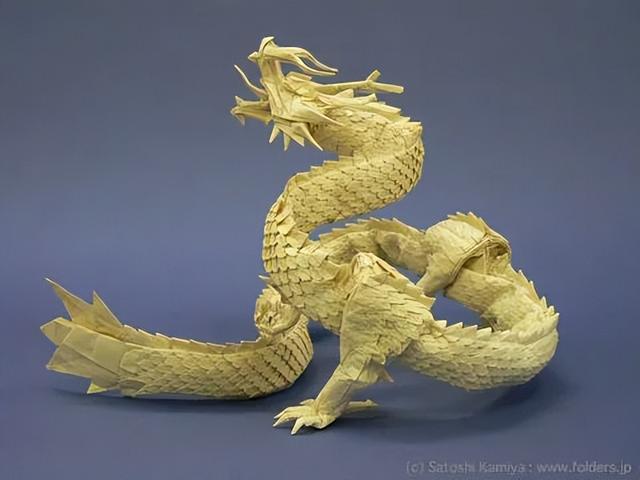小学6年级上册英语unit 1知识点(人教新起点1-6年级)
新起点一年级Unit 1 知识汇总
1、重点词汇:
a/an(一个) have(有) book(书,书本) ruler(尺子)
pencil(铅笔) schoolbag(书包) teacher(教师) I(我)
2、常用表达:
1. Stand up. 站起来。
2. Sit down, please. 请坐。
3. Open your eyes. 睁开你的眼睛。
4. Close your eyes. 闭上你的眼睛。
5. Show me your book / pencil. 给我看看你的书/铅笔。
3、重点句型:
描述我有......的句型: I have a / an ...
eg: I have a book.
I have a ruler.
立即练习➫人教新起点一年级Unit 1 单元测试练习及答案

新起点二年级Unit 1 知识汇总
1、重点词汇:
家庭成员:father(父亲;爸爸) mother(母亲;妈妈)
brother(兄;弟) sister(姐;妹)
grandfather(外)祖父 grandmother(外)祖母
其他:who(谁) he(他) she(她)
* 固定搭配:
my mother
我的妈妈
my grandfather
我的(外)祖父
my father
我的爸爸
my grandmother
我的(外)祖母
my brother
我的哥哥/弟弟
my sister
我的姐姐/妹妹
2、重点句型:
1. 介绍某人的句型:
This is my...
eg: This is my mother.
2. 如何询问对方是谁:
-- Who’s he / she?
-- He / She is my...
eg: -- Who's he?
-- He is my grandfather.
立即练习➫人教新起点二年级Unit 1 单元测试练习及答案
新起点三年级Unit 1 知识汇总
1、语音知识:
a
/æ/
cat, hat, apple, map, pat,
mat, cap, fat, tap
2、重点单词
my(我的) your(你的) name(名字) new(新的;新来的)
year(年;岁数) old(......岁的;年老的) class(班级)
grade(年级) age(年龄)
dear(亲爱的)(用于书信中,表示客气)
*固定搭配:
your name
你的名字
... years old
......岁
my name
我的名字
class two
二班
how old
(年龄)多大
grade three
三年级
new friend
新朋友
3、重点句型:
1. 如何询问对方名字:
-- Whats 'your name?
-- My name is ...
eg: -- What's your name?
-- My name is Jim.
2. 如何询问对方年龄:
-- How old are you?
-- I'm 基数词 years old.
eg: -- How old are you?
-- I'm eight years old.
3. 询问对方在哪个班的句型:
-- Which class are you in?
-- I'm in class 基数词.
eg: -- Which class are you in?
-- I'm in class two.
4. 介绍自己在几年级几班的句型:
I'm in class 基数词,grade 基数词.
eg: I'm in class three, grade one.
立即练习➫人教新起点三年级Unit 1 单元测试练习及答案

新起点(一起)四年级Unit 1 知识汇总
1、语音知识:
or
/ɔː/
pork, fork, corn, horse, fort, lord, port
2、重点词汇:
running(跑步) basketball(篮球) ping-pong(乒乓球)
friend(朋友) father(父亲) interesting(有趣的)
often(经常) late(晚) swim(游泳)
*固定搭配
play basketball
打篮球
all my friends
我所有的朋友
play ping-pong
打乒乓球
from home to school
从家到学校
go swimming
去游泳
get up
起床
with my friends
和我的朋友们
live with
和......生活在一起
after school
放学后
jumping rope
跳绳
be good at
擅长
play cricket
打板球
roller skating
滑旱冰
go to the park
去公园
go running
去跑步
live in a fort
住在一个城堡里
want to be
想成为
play football
踢足球
play baseball
打棒球
twice a week
一周两次
v. play 球类名称
v. be good at 名词 / 动词-ing
3、常用表达:
1. What about ...?
......怎么样?
2. Great!
太棒了!
3. Here you are.
给你。
4. No problem!
没问题!
5. OK.
好的。
6. That's a problem!
那是一个问题!
4、重点句型:
1. 询问对方是否经常做某事:
-- Do you often 动词原形?
-- Yes, I / we do.
No, I / we don't.
eg: -- Do you often play baseball?
-- Yes, I do.
2. 询问对方是否擅长某事:
-- Are you good at 动词-ing?
-- Yes, I am. / Yes, we are.
No, I am not. / No, we aren’t.
eg: -- Are you good at singing?
-- Yes, I am.
立即练习➫人教新起点四年级Unit 1 单元测试练习及答案

新起点(一起)五年级Unit 1 知识汇总
1、语音知识:
bl
/bl/
blue, block, blind, blood, blank
pl
/pl/
play, plant, plane
cl
/kl/
clock, climb, clay, clean, club, class
gl
/gl/
glove, glue, glass
fl
/fl/
fly, floor, flat, flower, flag
sl
/sl/
slim, sleep, slow, slop
2、重点词汇:
形容词:clever(聪明的) careless(粗心的) polite(有礼貌的)
quiet(安静的) cute(漂亮的,可爱的) friendly(友好的)
helpful(肯帮忙的) active(活跃的) popular(受欢迎的)
其他:talk(说话) party(聚会) all(全部) but(但是)
sometimes(有时) bark(吠,叫) forget(忘记)
with(同......一起)
专有名词:Beijing duck(北京烤鸭)
*词组:
talk about
谈论
stay with
和......待在一起
birthday party
生日聚会
answer questions
回答问题
pet dog
宠物狗
clean the car
清洗汽车
so many
这么多
walk his dog
溜他的狗
model plane
模型飞机
play with...
和......一起玩
be famous for
因......而著名
play tricks on...
捉弄......
v .be good at 名词/动词-ing (擅长......)
v. forget to do sth (忘记做......)
v. help sb do sth(帮助某人做某事)
3、常用表达:
1. Thank you.
谢谢你。
2. Good night.
晚安。
4、重点句型:
如何询问某人的性格特点:
-- What's 主语 like?
-- He / She is 描写人物性格的形容词.
eg: -- What's Jack like?
-- He is popular and active.
立即练习➫人教新起点五年级Unit 1 单元测试练习及答案

新起点(一起)六年级Unit 1 知识汇总
1、语音知识:
ear
/eə/
pear, wear, bear
air
/eə/
hair, chair, stairs
2、重点词汇:
方位词:north(北) south(南) east(东) west(西)
动词:taste(品尝)
介词:around(遍及;围绕)
名词:soup(汤) vacation(假期) map(地图)
temple(寺) silk(丝绸) forest(树林) stone(石头)
形容词:famous(著名的) foggy(有雾的) spicy(辣的)
专有名词:the Summer Palace(颐和园)
Yuyuan Garden(豫园)
the Potala Palace(布达拉宫)
the Yellow River(黄河)
the Terracotta Army(兵马俑)
the Yangtze River(长江)
West Lake(西湖)
the Piano Museum(钢琴博物馆)
Longjing tea(龙井茶)
Gulangyu Island(鼓浪屿岛)
Peking Opera(京剧)
the Great Wall(长城)
the City God temple(城隍庙)
*词组:
morning tea
早茶
by plane
乘飞机
summer vacation
暑假
beautiful seaside
漂亮的海滨
have morning tea
喝早茶
stay in ...
待在......
sit on a chair
坐在椅子上
be famous for...
因......而著名
in the world
在世界上
a lot of
很多
the capital of ...
......的首都
by train
乘火车
many kinds of
许多种类的
fly to
飞向
be glad to ...
很高兴......
a stone forest
石林
snow-capped mountains
雪山
comb his hair
梳他的毛发
write an email to ...
给......写一封邮件
in China
在中国
eat seafood
吃海鲜
be afraid of ...
害怕......
look at
看
in summer
在夏天
in the west / east / south / north of China
在中国的西部/东部/南部/北部
v by 交通工具
3、常用表达:
1. You're right.
你(猜)对了。
4、重点句型:
1. 询问某城市在哪里:
-- Where is 城市名?
-- It's in the 方位词 其他.
eg: -- Where is Ha’erbin?
-- It's in the north of China.
2. 询问某地因什么而著名:
-- What's 地名 famous for?
-- It's famous for 其他.
eg: -- What's Xi'an famous for?
-- It's famous for the Terracotta Army.
,免责声明:本文仅代表文章作者的个人观点,与本站无关。其原创性、真实性以及文中陈述文字和内容未经本站证实,对本文以及其中全部或者部分内容文字的真实性、完整性和原创性本站不作任何保证或承诺,请读者仅作参考,并自行核实相关内容。文章投诉邮箱:anhduc.ph@yahoo.com






